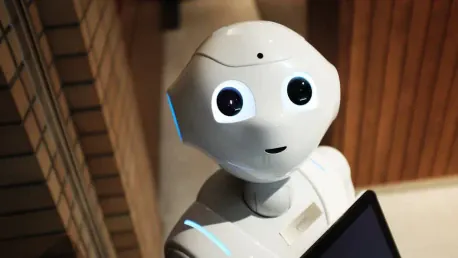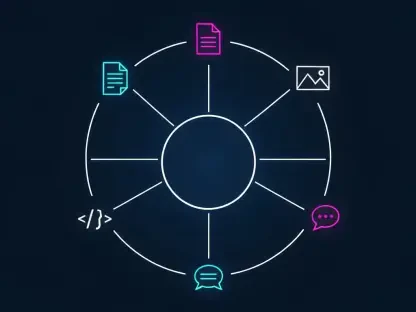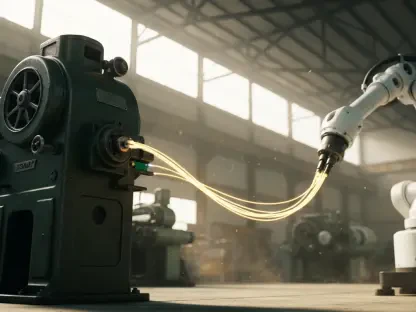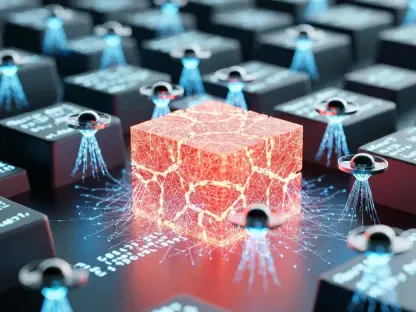Imagine a world where robots can gain decades’ worth of experience in mere hours, all while significantly reducing the need for costly physical trials and errors. This revolutionary concept has come to life with Genesis, a cutting-edge, open-source computer simulation system unveiled by a coalition of researchers from several universities and private sectors. This system allows robots to perform tasks in a simulated environment at an astonishing rate, up to 430,000 times faster than in real-world conditions, by generating intricate 3D physics simulations from simple text inputs.
The Power of Accelerated Simulation in Robotics
High-speed processing for rapid neural network training
Genesis leverages AI agents to create dynamic, four-dimensional worlds that provide robots with virtual equivalents of extensive real-world experience in mere hours of computer time. These simulations process physics calculations up to 80 times faster than currently available robot simulators such as Nvidia’s Isaac Gym. This high-speed processing is incredibly vital for training the neural networks that will govern future robots in practical applications. The ability to conduct up to 100,000 simulations simultaneously using graphics cards similar to those found in video games represents a significant leap forward in the efficiency of robotic training.
The profound impact of this accelerated simulation extends beyond mere speed. It enables robots to master complex tasks much more quickly than with traditional methods and reduces reliance on expensive and time-consuming physical trials. By cutting down on the resources needed for training, Genesis allows researchers and developers to focus on optimizing robotic performance and incorporating advancements in AI technologies. This shift paves the way for more innovative applications of robotics across various industries, as it drastically shortens the development cycle and empowers teams to iterate and improve their designs continually.
Text-to-simulation: A seamless transformation
A key aspect of Genesis’ innovation is its ability to transform text descriptions into comprehensive, dynamic virtual environments. Through the use of vision-language models (VLMs), Genesis generates realistic physics, camera movements, and object behaviors from simple natural language commands. This capability eliminates the laborious and time-consuming manual programming traditionally required to create robotic training scenarios. As a result, data-rich, ray-traced videos are produced for robotic training, enabling a more intuitive and flexible approach to designing and testing various tasks and behaviors.
This seamless transformation from text to simulation is complemented by Genesis’ non-proprietary, community-driven nature, which facilitates rapid advancements and widespread collaboration in the field of robotics. By making advanced robotic simulation tools accessible to a broader community, Genesis democratizes the development process and invites contributions from researchers, developers, and enthusiasts worldwide. The collaborative efforts driven by this open-source framework are expected to accelerate the pace of innovation, leading to more sophisticated and capable robotic systems.
Advancing Accessibility and Innovation in Robotics
Embracing a Python-first approach
Genesis distinguishes itself from other 3D robot training simulators by adopting a Python-first approach, rather than relying on C++ or CUDA for underlying computations. This Python-centric framework simplifies the simulation process, making it easier for researchers to execute complex simulations using standard computers and conventional hardware. Python’s widespread popularity and ease of use make it an ideal choice for developers and researchers, providing them with a familiar and efficient programming environment to work within.
The accessibility offered by Genesis’s Python-first approach is crucial in expanding the reach of advanced robotic simulation tools. By lowering the barriers to entry, Genesis empowers a wider range of individuals and organizations to participate in the development and training of robots. This increased participation not only fosters a diverse ecosystem of ideas and approaches but also helps bridge the gap between academic research and practical applications in the industry. As more people gain access to sophisticated simulation tools, the potential for groundbreaking innovations in robotics grows exponentially.
Enabling the simulation of real-world scenarios
Genesis’ enhanced capabilities extend beyond mere ease of use, as AI-generated dynamic worlds enable the simulation of scenarios that closely mirror real-world conditions. By providing robots with training environments that accurately reflect the complexities and challenges they will encounter in practice, Genesis ensures that robots are better prepared to perform tasks in diverse and unpredictable situations. This realism is essential for developing robust and reliable robotic systems that can operate effectively in a wide range of applications, from industrial automation to autonomous vehicles.
The community-driven aspect of Genesis further enhances its capabilities by encouraging a continuous exchange of knowledge and ideas among users. Researchers can share their findings, collaborate on projects, and contribute to the ongoing improvement of the simulation platform. This collective effort not only accelerates the pace of advancements but also ensures that Genesis remains at the forefront of robotic simulation technology. With a robust and ever-evolving toolset at their disposal, developers are better equipped to push the boundaries of what is possible in robotics and AI.
Conclusion
Imagine a world where robots can acquire decades of experience in just a few hours, all while drastically cutting down on the need for expensive physical trials and errors. Welcome to the revolutionary era of Genesis, a state-of-the-art, open-source computer simulation system developed by a consortium of researchers from various universities and private sector entities. This groundbreaking system empowers robots to execute tasks within a simulated environment remarkably fast, operating at speeds up to 430,000 times quicker than real-world scenarios. This accelerated learning is achieved through the generation of complex, detailed 3D physics simulations produced from straightforward text instructions. By leveraging this technology, robots can swiftly gain valuable experience, refining their capabilities without the need for prolonged, costly physical experiments. Genesis provides a significant leap forward in robotics, promising a future where robotic efficiency and effectiveness are enhanced exponentially, leading to innovative solutions and advancements across multiple industries.









